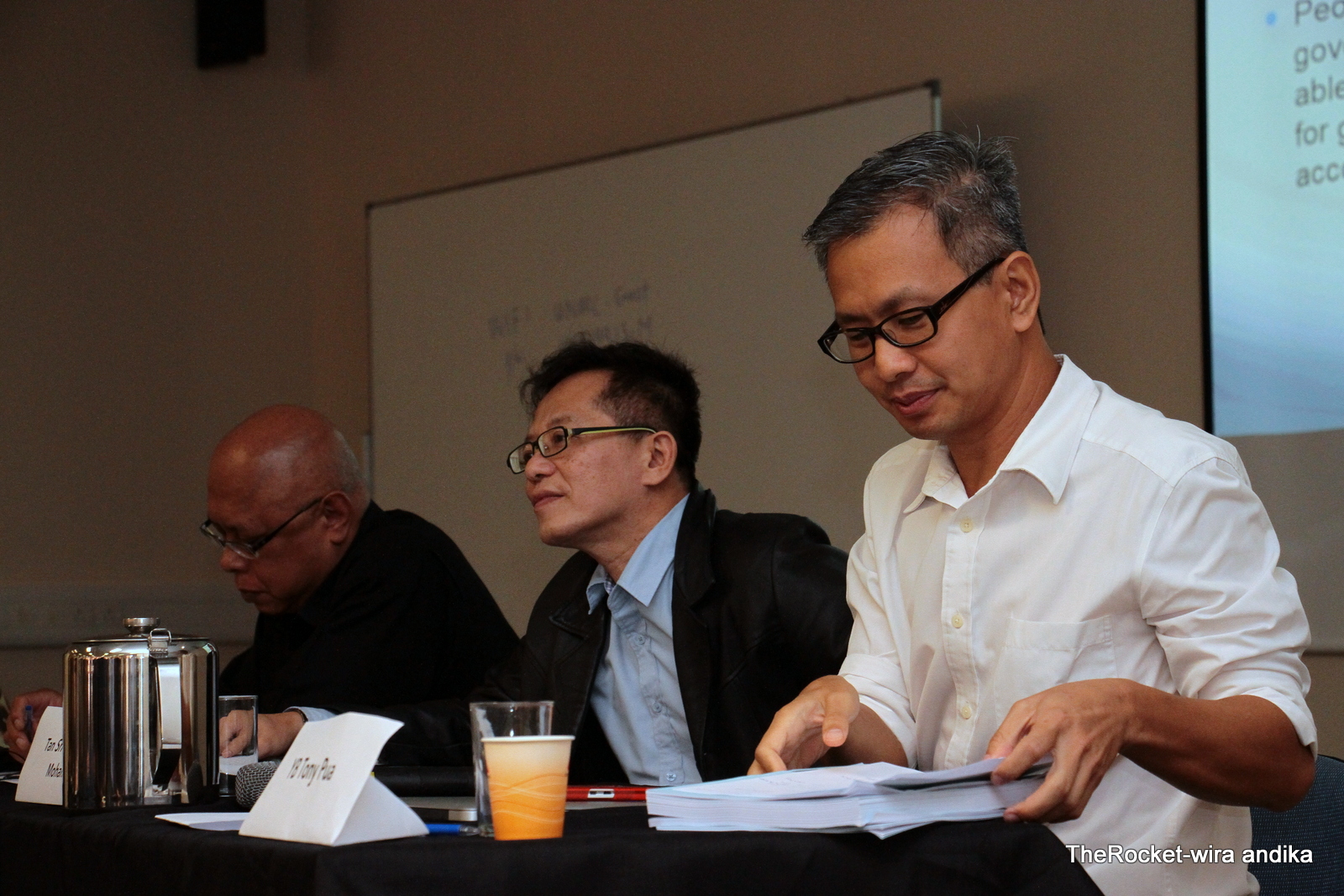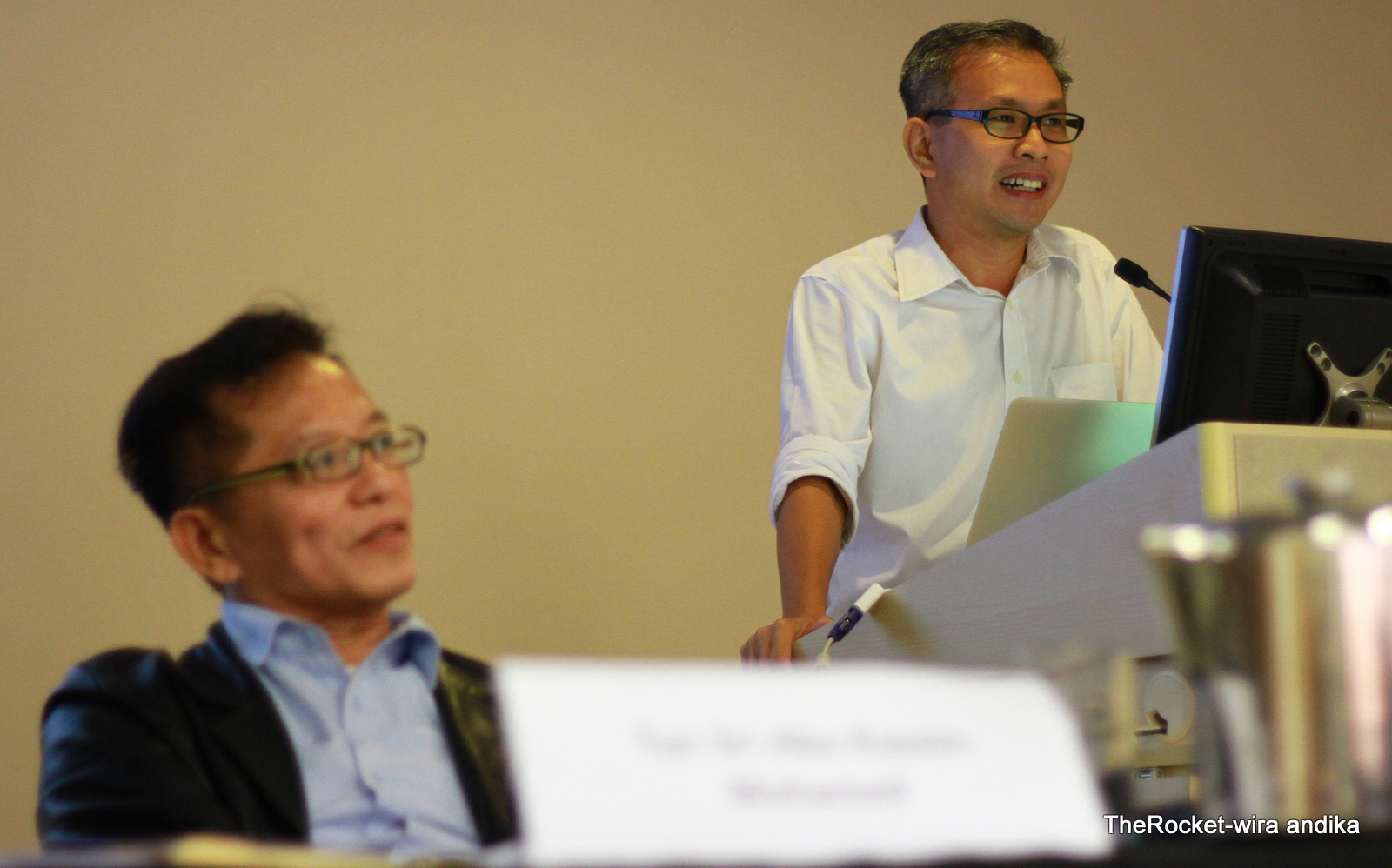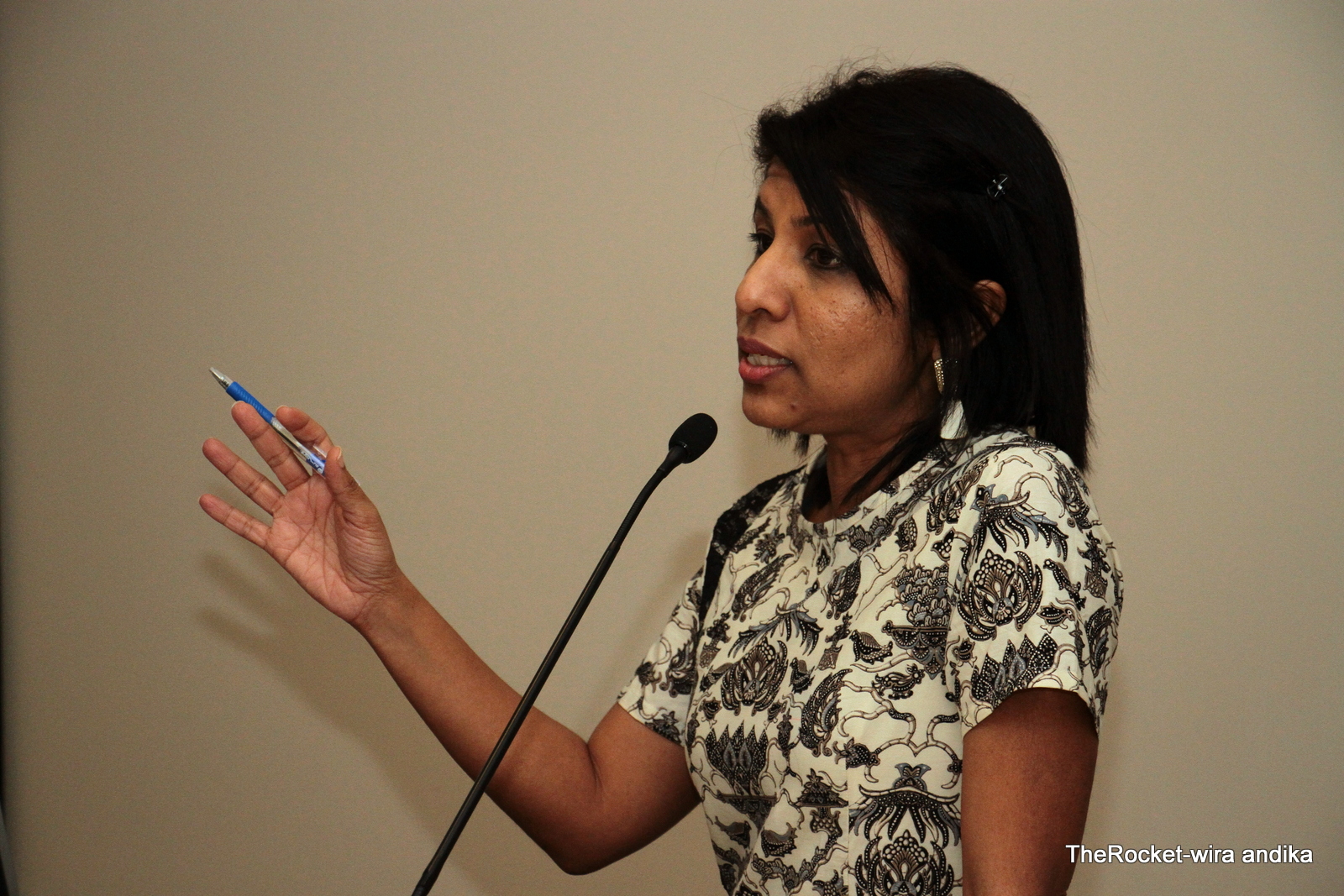 29 NOVEMBER – In a forum on corruption today, Tony Pua told the Auditor General that he cannot see no need to audit 1MDB or KLIA 2, just because it has been audited by “one of the big four companies”.
29 NOVEMBER – In a forum on corruption today, Tony Pua told the Auditor General that he cannot see no need to audit 1MDB or KLIA 2, just because it has been audited by “one of the big four companies”.
At the forum titled“The A-G’s Report: Biting the bullet on government accountability” in KL today, Pua said that though he understood that the auditor general’s hands were tied as he would need the approval of the government to audit particular agencies, the role played by the Auditor General is essential in identifying areas of corruption marked by unnecessary spending.
He said that Pricewaterhouse Coopers for instance, would audit based on financial statements and documents to back a monetary transaction, as opposed to the Auditor General who would have to scrutinize large transactions.
“What Pricewaterhouse Coopers would say is, if you really paid one million Ringgit for something, then show me the proof that you paid 1 million Ringgit”.
Pua explained further, that the Auditor General would ask on the other hand;
“Why the hell do we want this one million ringgit item anyway?”
“Is this a fair price?”
“Is the market price only RM200,000 but we paid one million ringgit?”
 He said that the role played by the Auditor General is completely different from the other audit firms. Tony Pua said this in response to the Auditor General Ambrin Buang , also a panelist at the forum, who had opined that there was no need for his department to audit the accounts of KLIA 2 or 1MDB.
He said that the role played by the Auditor General is completely different from the other audit firms. Tony Pua said this in response to the Auditor General Ambrin Buang , also a panelist at the forum, who had opined that there was no need for his department to audit the accounts of KLIA 2 or 1MDB.
Pua also took a swipe at both Ambrin Buang and MACC senior deputy director of investigations Han Chee Rull who said in their speeches that their power was limited in taking actions against those responsible behind financial leakages highlighted by the AG report.
“It is a little sad when your key agencies to fight corruption in this country practically go to every public presentation starting off by defensively saying – there is only so much we can do.”
“It is quite sad that there doesn’t seem to be an attempt to use their power to clamp down on the nonsense going on up to,” Pua said.
Han had said that the MACC is always very ‘enthusiastic’ when the audit report is published, but conceded that they had to be ‘practical’.
He added that though the public are quick to conclude that corruption has occurred from misuse of power reported, it is “not corruption in a legal criminal sense”.
However, Pua pointed out later that the laws in the existing MACC Act are “pretty harsh” when identifying an offense if using office or position for gratification. This refers to gifts or money, or incentives given as bribes.
He highlighted Section 23 (1) of the MACC Act that stated “Any officer of a public body who uses his office or position for any gratification, whether for himself, for his relative or associate, commits an offence.
He also highlighted the word used section 23 (2), which states that for the purposes of subsection (1), an officer of a public body “shall be presumed, until the contrary is proved” to have commited such offence.
“It’s almost bordering on guilty until proven innocent,” Pua said, adding that MACC has very strong laws today to take action against corrupt individuals.
All the MACC needs to do, according to Pua, is to find out where the gratification is.
Anti-corruption initiative by C4
 Also present at the forum was Cynthia Gabriel, director of the anti-corruption NGO C4, who said that she had launched an initiative to allow Malaysians to speak up and comment on the AG’s report. The anti-corruption effort was launched at www.combatcorruption.my, where the best comment would earn the netizen a chance on the Public Accounts Committee, as a citizens’ audit report.
Also present at the forum was Cynthia Gabriel, director of the anti-corruption NGO C4, who said that she had launched an initiative to allow Malaysians to speak up and comment on the AG’s report. The anti-corruption effort was launched at www.combatcorruption.my, where the best comment would earn the netizen a chance on the Public Accounts Committee, as a citizens’ audit report.
Speaking at the forum as the co-organizer of the forum along with the University of Nottingham, she said that it was time that Malaysians push the government to be more open, transparent and responsive.
“The basic question that people are asking is, if so much money was not wasted on corruption, would the burden now be placed on us?” she said, referring to the increasing cost of living in Malaysia.
She said that Indonesia, on the other hand is the chair of The Open Government Partnership, which is one of the international platforms made up of 65 countries that allows domestic groups to push for a more accountable government – that Malaysia is not a part of.
Cynthia Gabriel also commended Penang and Selangor state governments for putting in place a “Freedom of Information Act” but said that Act which has not been used, should be made use of to make public the Selangor water agreements which the federal government does not want to release. –The Rocket.



